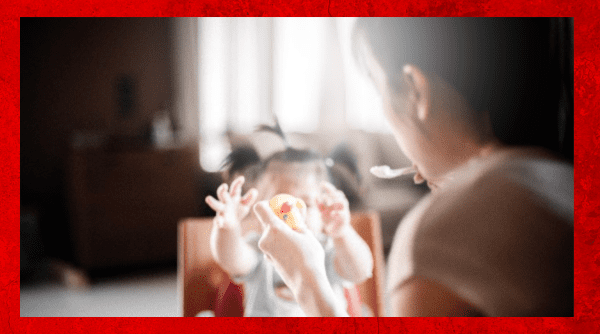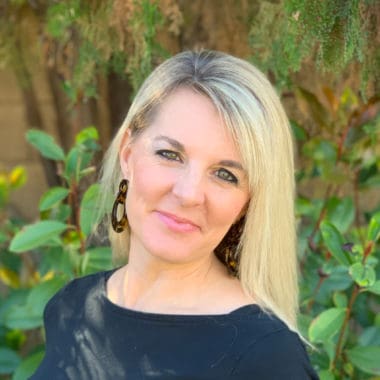This Present Paradise
A Series of Reflections on St. Elizabeth of the Trinity
(Start with part 1 here.)
“In those days Mary arose and went with haste into the hill country, to a city of Judah, and she entered the house of Zechariah and greeted Elizabeth.” (Lk 1: 39-40)
Filled with the Holy Spirit and bearing Jesus within her, Mary is compelled to visit her cousin, to share in their mutual joy and to attend to Elizabeth’s needs in the final months of her pregnancy. What a beautiful illustration of a love that cannot be contained—that is never stagnant. Authentic love, Christian love, is a river of freshness which wells up within us and carries us out to others, spilling over into a life of service. When we know Christ, when we have intimacy with Him, we will see Him everywhere and be drawn to Him in the face of the helpless, the suffering, and the poor.
St. Elizabeth of the Trinity was no exception. The time before she entered the convent was spent not only in prayer but in its natural and necessary overflow, works of mercy. “Love of neighbor,” the Catechism tells us, “is inseparable from love for God.” (CCC 1878) Elizabeth did not just love God on paper or in prayer. She loved Him in people. She responded to them and loved them because she loved Him. There really is no other way to love.
The children of the hundreds of women working in the Dijon tobacco factory were formed into a youth club, and Elizabeth would watch the little girls. She made clothes for her parish which were sold for the missions and assisted in teaching and preparing the children for the First Communion, visiting households to invite them to send the children to catechism classes.
She also paid visits to the poor and the sick in her neighborhood, sharing with them about God and blessing their souls as well as their bodies. “I admired her a great deal during visits to the poor,” her friend Marie remembered. “She had a word of amiable welcome which opens up hearts: she attracted the children and knew how to speak to them. Even in the hostile families, she knew how to find the means of saying something about the good God and about duty.”
She entered each house as a reflection of Christ Himself, and it was Christ within her who ministered into the spiritual and material hunger of His people, weaving into a single motion of love both the spiritual and corporal works of mercy, those “charitable actions by which we come to the aid of our neighbor in his spiritual and bodily necessities” (CCC 2447).
The Church gives us 7 Spiritual Works of Mercy:
- Admonish the Sinner
- Instruct the Ignorant
- Counsel the Doubtful
- Bear Wrongs Patiently
- Forgive Offenses Willingly
- Comfort the Afflicted
- Pray for the Living and the Dead
And 7 Corporal Works fo Mercy:
- Feed the Hungry
- Give Drink to the Thirsty
- Clothe the Naked
- Shelter the Homeless
- Visit the Sick
- Visit the Imprisoned
- Bury the Dead
Every single day we are given ways to pour out the very mercy of God upon the world—how generous He is, to allow us to participate in his work of saving souls and reconciling the world to Himself! And sometimes the opportunities are closer and more numerous than we realize–we may not have to look far to see where we are called to serve.
Several years ago I was at the funeral Mass for a friend’s mother, and my two youngest were with me. We lasted only a few minutes in the main church. My three year old, his toddler voice echoing during the quiet and solemn service, sent us into the vestibule. I could hear the readings from the speakers back there, and listened while the kids sprawled at my feet. It was Matthew’s Gospel of the final judgement, where Christ tells of separating the sheep from the goats. I felt my stomach knotting up as I listened.
Then he will say to those at his left hand, ‘Depart from me, you cursed, into the eternal fire prepared for the devil and his angels; for I was hungry and you gave me no food, I was thirsty and you gave me no drink, I was a stranger and you did not welcome me, naked and you did not clothe me, sick and in prison and you did not visit me.’ – Matthew 25:41-43
Ugh. It had been a long time since I had shadowed the entrance to a soup kitchen. Did making meals for a new mom count? Maybe not. Although, hey – there was that Gatorade I gave to a guy looking for change in the Costco parking lot. Hmmm….I delivered some outgrown clothes to the parish rummage sale last month. Not quite the same as clothing the naked, though. I had never visited a prison, either. Was leading a women’s group instructing the ignorant? Not sure. This wasn’t looking good. I hung my head, feeling very much like a goat.
And then, as if on cue, I felt a sticky hand tugging on my black skirt. “Mommy, can I have some water? I’m thirsty.”
I absently handed him the water bottle, and then, as I looked at the little face, everything became clear. As if God himself had turned the lens and put my life back into focus.
Truly, I say to you, as you did it to one of the least of these my brethren, you did it to me.
Of course. I knew then what the King himself was trying to tell me. This was the time in my life when the “least” were my little ones. (Although now some of my little ones are taller than their mother!) Six times I had welcomed tiny strangers to this new, bright world, clothed them in pink and blue hats and blankets, fed them, and nursed them through countless nights of fevers and tummy aches. Three times I had welcomed new life, and had to give it back again before I could do any of those things.
And still now, all the grocery shopping, mac and cheese making, loading endless piles of socks and sheets and basketball jerseys into the washing machine…teaching them their prayers, taking them to Mass – I was doing what God wanted me to do. I was taking care of Him, of Him living and dwelling in the souls of those he had deliberately entrusted to me.
Yes, I could do more. I should do more. I recalled singing Christmas carols with my kids at a nursing home, or visiting elderly relatives on the weekends. We needed to do more of that as a family. But the reality is, I don’t have a lot of time to take from this precious bunch of kids to put into outside service right now, in this particular season. It would be an injustice to take too much of what is theirs – my time and attention – and give it away.
For now, I had to primarily be a missionary into the heart of my family.
There are no shortages of quotes from Mother Teresa about this very reality. People would want to do what she did, to care for the poorest of the poor in the farthest corners of the earth. But she would always point them back to their own families first.
Do you know the poor of your own home first? Maybe in your home there is somebody who is feeling lonely, very unwanted, very handicapped. Maybe your husband, your wife, or your child is lonely. Do you know that? – Saint Teresa of Calcutta
St. Elizabeth did know it. She was always available and sensitive to her sister, her mother, her friends. Nursing her mother through a long illness, nestling with love and prayer into her anxious heart, writing frequent letters to all of them in her convent years with promises to ‘meet’ them within prayer in the presence of God—it was all so important to her. These were the precious souls God had put directly in her life to love. She never lost sight of that priority, even when separated from them. Our Lady, too–she may have hurried to the hills when she was needed there, but she spent 30 years hidden at home serving her husband and son.
And when we put others before ourselves, even—no, especially—when they are in our own homes, when we bring Christ into every corner of our kitchens and our shopping carts and our minivans and our arms and laps—then we can be very sure of this:
If you are caring for his lambs, you are one of the sheep.
I demand from you deeds of mercy, which are to arise out of love for Me. You are to show mercy to your neighbors always and everywhere. – Diary of St. Faustina, 742.
Read part 17 here.
Image courtesy of Unsplash.




